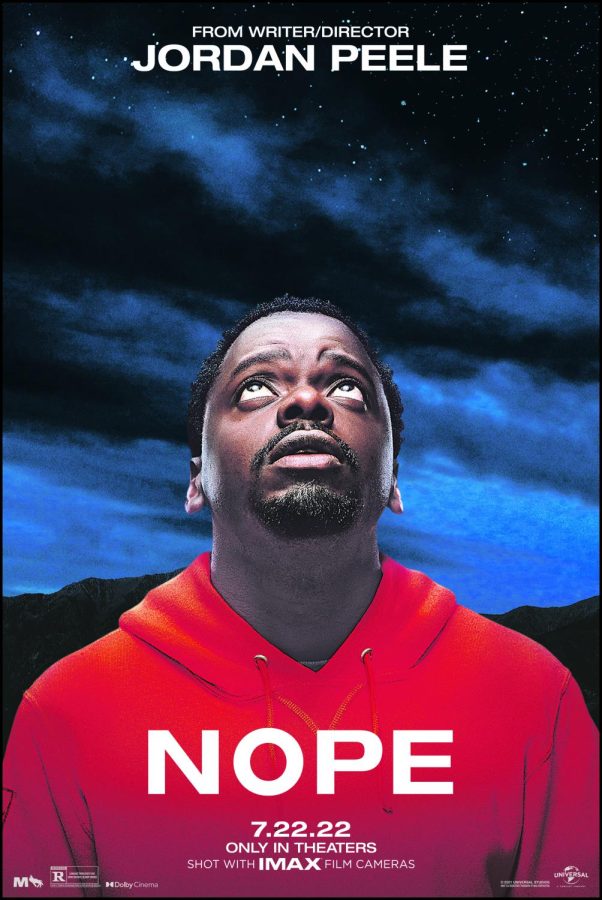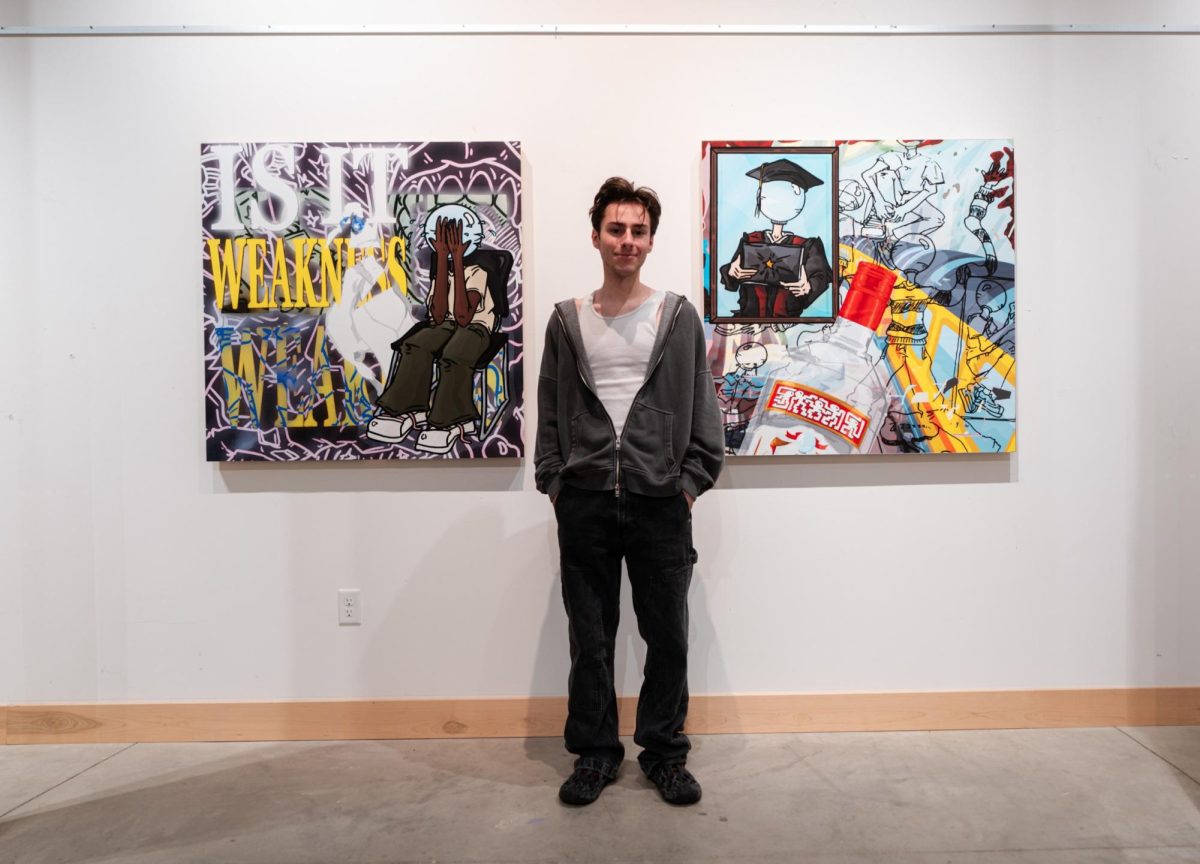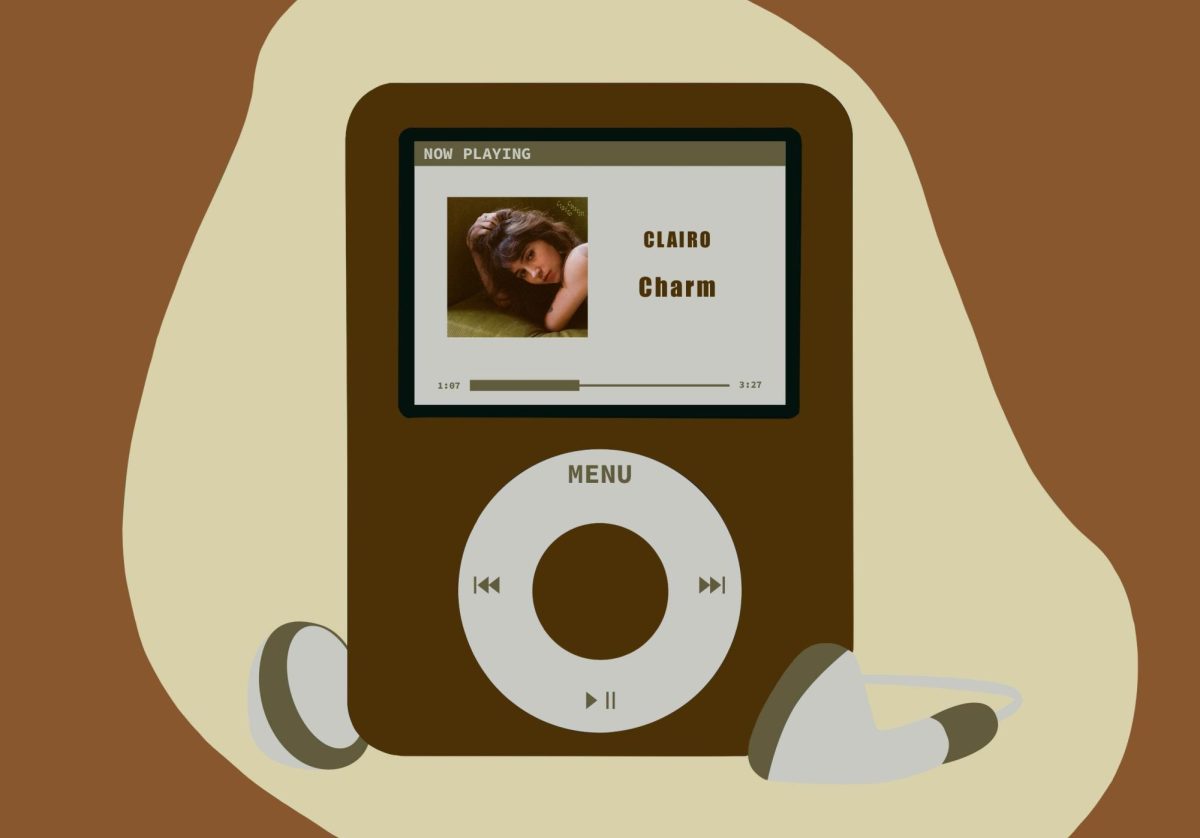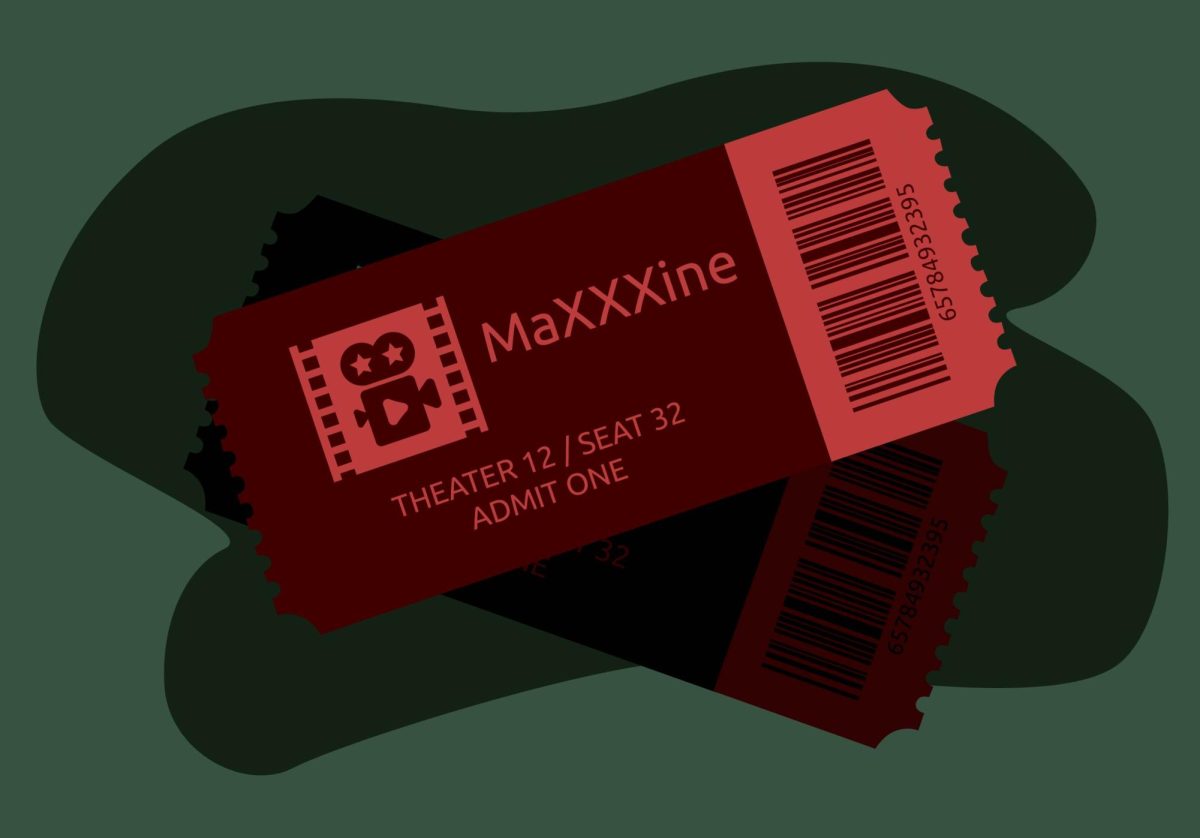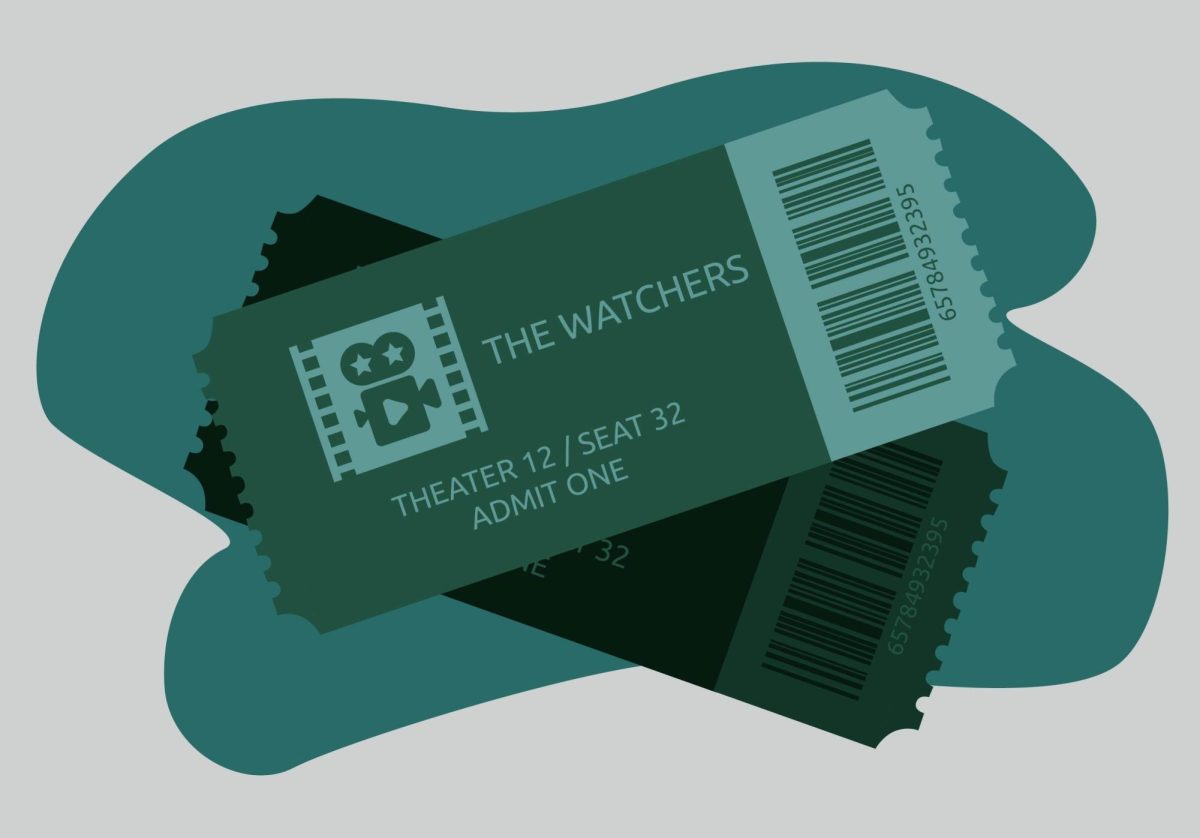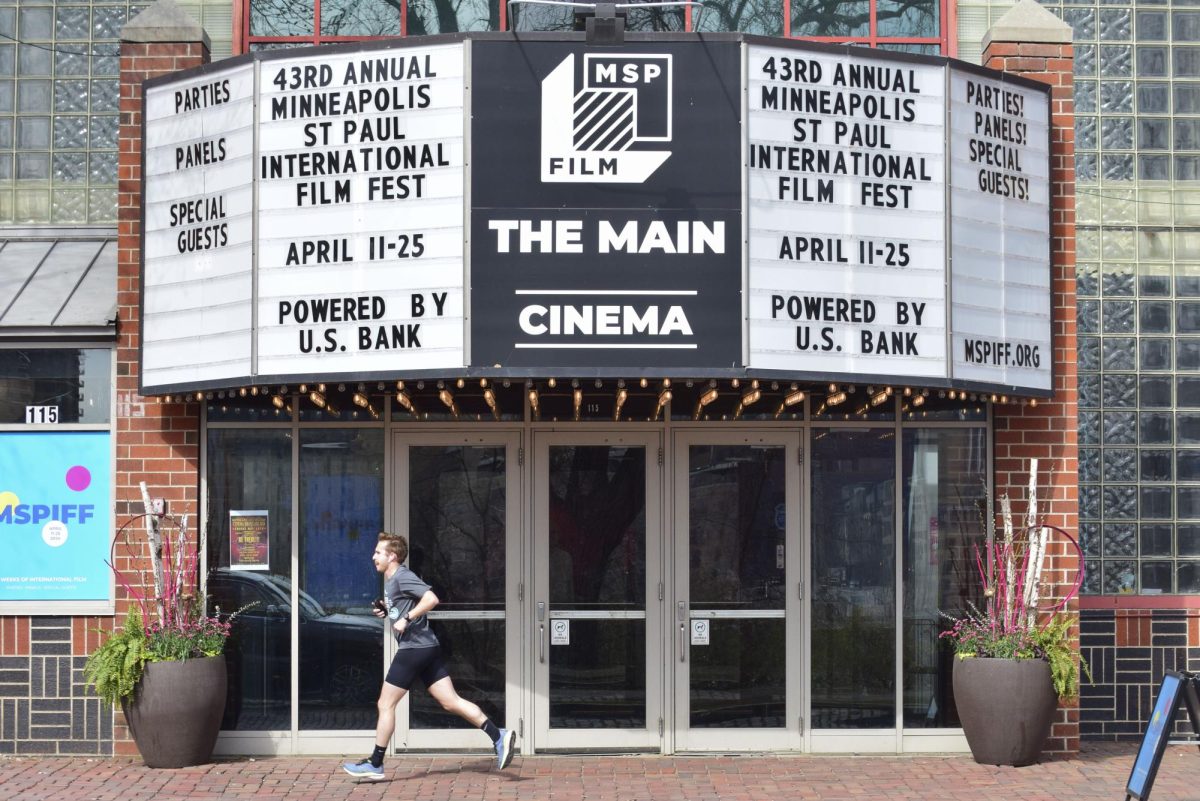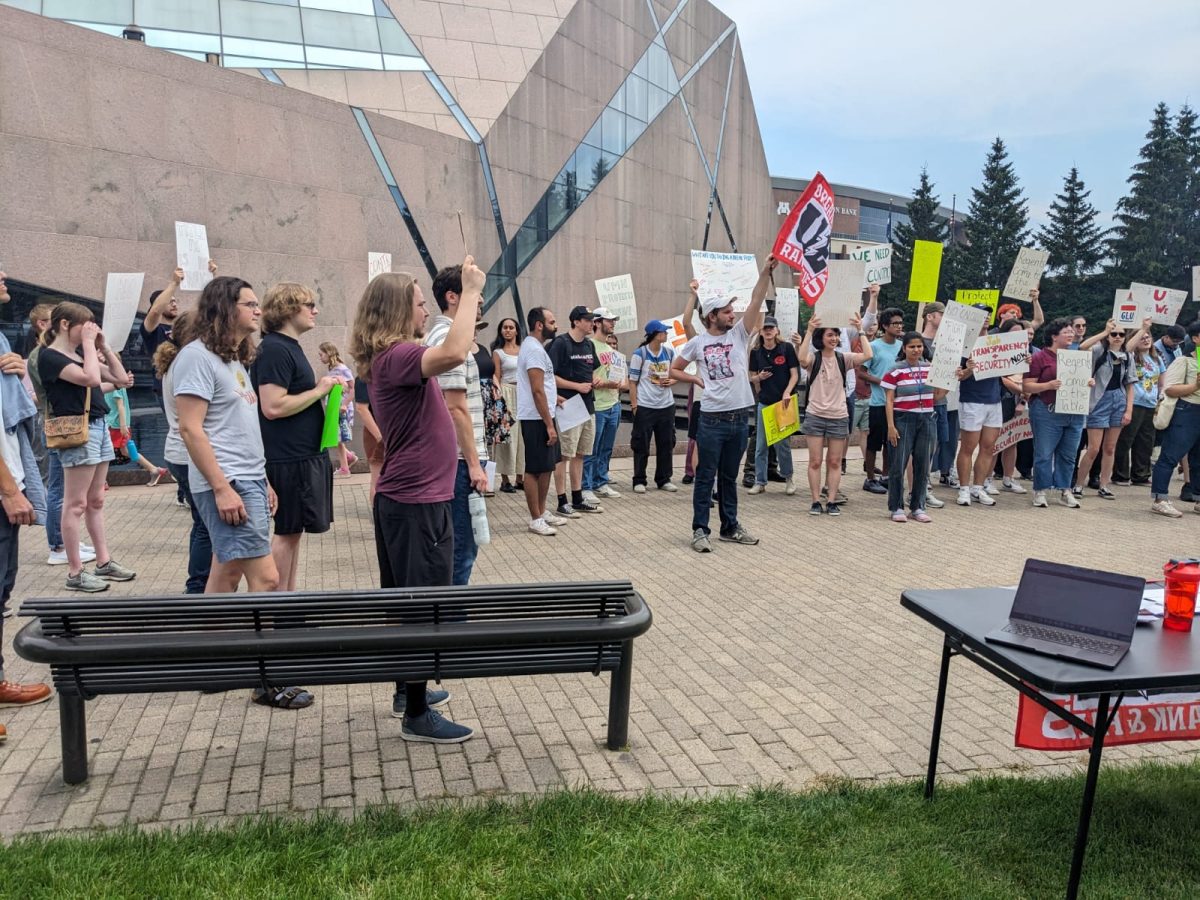Look up. Do you see that cloud? No, that one, over the ridge. How long has it been there?
When a horror movie’s villain is obscured for most of the film, viewers are sometimes left disappointed at the big reveal because the carefully crafted illusion is shattered. “Nope” is not one of those films, nor is it a clichéd story of alien abduction, despite what the trailers may imply. But who could expect disappointment from Jordan Peele, the filmmaker who’s quickly moved from comedy legend (“Key and Peele”) to one of the most revolutionary horror directors (“Get Out” and “Us”) of our generation?
Peele’s “Nope” blends humor at times where a scare would be easiest, eldritch horror when least expected and even seraphic beauty when abject terror is teased. Throughout the film’s three acts, Peele successfully creates convention with the express purpose of breaking it, sets boundaries just to surpass them and triumphs in building an unforgettable spectacle.
Reserved brother OJ (Daniel Kaluuya, the star of Peele’s debut) and firecracker sister Emerald (an utterly electric Keke Palmer) run the Haywood family horse training ranch (“the only black owned horse trainers in Hollywood”) and face financial strife after the peculiar death of their father (a grizzled Keith David). Haunted by this, OJ tries his best to take responsibility, though his reticent social skills leave much to be desired and Emerald’s flighty attitude doesn’t help much.
Soon, mystifying circumstances take over their lives and their ranch: horses escape and power fades out without explanation before UFOs, or more accurately UAPs, begin to dart across the sky, obscured by clouds.
The two siblings become resolute in their quest for the “Oprah shot,” or “undeniable proof of aliens on camera,” in a bid for lifelong economic stability. After all, capturing firsts on camera runs in the Haywood blood. The siblings claim descendance from the unnamed and uncredited Black jockey shown in the world’s first motion picture, just one of Peele’s many sly comments on Hollywood ethics throughout the film.
The siblings’ scheme is aided by conspiracy theory-spouting tech store employee Angel Torres (a stellar breakout performance by Brandon Perea), a local loser who almost certainly went to the Storm Area 51 Facebook event in 2019. Whereas former child star Ricky “Jupe” Park (a charming Steven Yeun) uses his kitschy and exploitative California gold rush-themed park near the Haywood ranch as a distraction, if not hindrance, on the protagonists’ plan.
Perception thematically guides “Nope” and is borne out in gripping facial expressions by the entire cast. Peele nods toward the astonished faces of “Jurassic Park” here, and the cast exudes the eye-held terror of a Junji Ito manga at times. Where eyes served as a warning in “Get Out,” they’re a power in “Nope,” an asset to be used, or left unused, with intention.
Shot on 65mm IMAX film cameras by cinematographer Hoyte Van Hoytema (“Interstellar,” “Dunkirk”), “Nope” leans into the alienating desert landscape for a visually striking reward. The dusty Californian grime captured by Hoytema, plus the Hollywood have-not motif, bring to mind Tarantino’s “Once Upon a Time in Hollywood,” while the permeating feeling of being hunted by the unseen screams “Jaws.” Many more influences abound considering Peele’s lust for cinema culture is paralleled only by the likes of Tarantino and Spielberg.
Sonically, Michael Abels’ (composer for both of Peele’s previous films) score leans into the atmosphere of a great unknown. Initially we’re only afforded glimpses at the subject, allowing viewers to fill in the blanks for themselves and pushing audiences’ imaginations into a murky gloom. Similar to both “Get Out” and “Us” (think hypnotic teaspoon scraping or sharp, dissonant violin notes), “Nope” aids the imagination with otherworldly rippling, piercing sounds, a stray note here, a cacophony of disembodied screams there.
Peele’s full-bodied characterization echoes throughout the film’s entire cast, even down to Barbie Ferreira’s cameos as Angel’s Hot Cheeto-eating coworker. Hopefully, this time around, the cast will be considered in the upcoming awards season…
Subverting expectation has paradoxically become a part of Peele’s signature brand, despite rarely disappointing his audiences. Amid Marvel excess and neverending corporate franchises, audiences may have been spooked by the mere concept of a heady director moving toward the extravagant. Worry not, “Nope” uses a large scale to create Peele’s biggest and brightest cinematic experience yet: a proper summer blockbuster.










